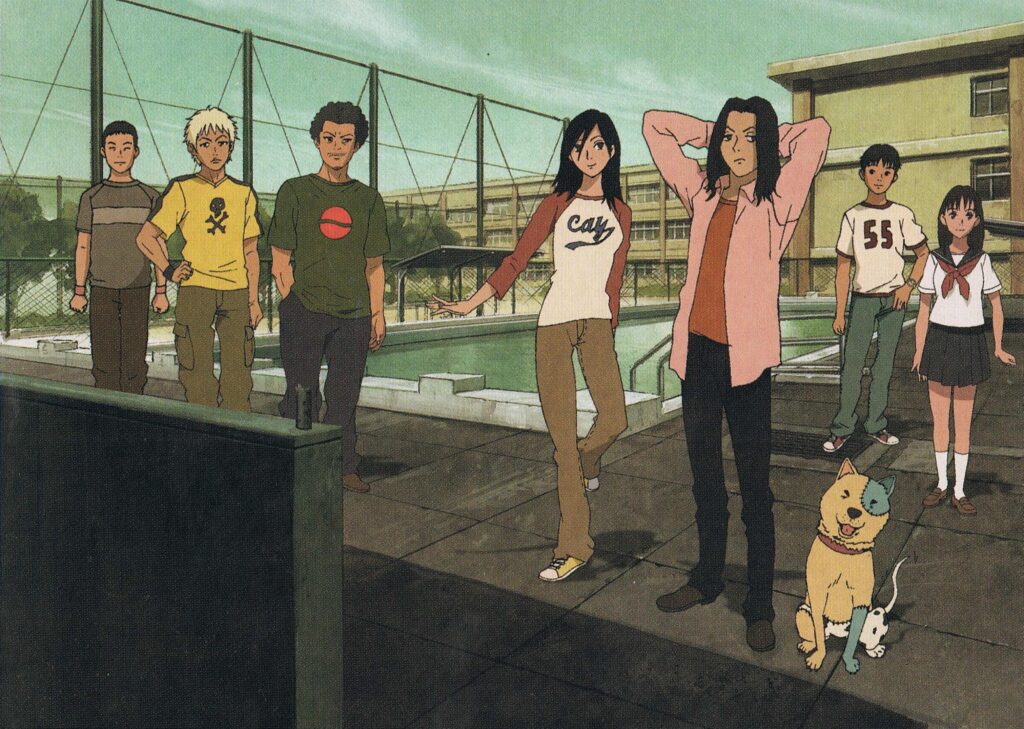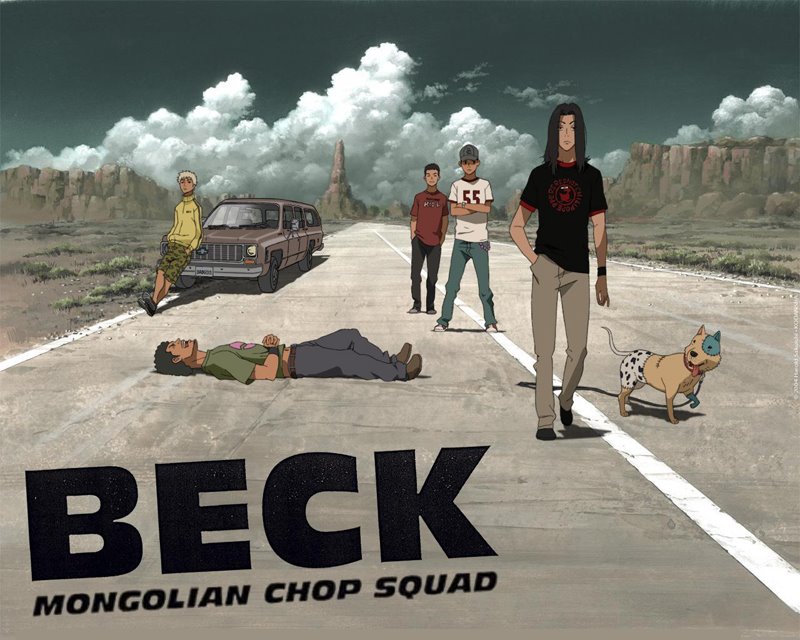A Look Back at Two Decades of the Beck Anime
20 years ago mangaka Harold Sakuishi’s coming-of-age manga, centered on the life of 14 year old Yukio “Koyuki” Tanaka and the eponymous band he helped form, began its run as an anime. Though the series went on for four years more as a manga, victim to Tokyopop’s untimely and odd “hiatus” as a manga publisher, the anime still serves as a ode to the 90s, early 2000s anime, and fittingly it still rocks today same as it did when I first came upon the series.

Slice of life series were certainly not uncharacteristic at the time Beck came to be; however, few such series were so grounded in both the reality of life and such specificity of time and place, aka the mid to late 90s in Japan, as Beck was. Of course the manga itself was originally written starting in 1999, so at the time end of that decade, but even then it already felt like a time capsule for the rock era that Sakuishi himself loved so much.
Sakuishi himself was an incredibly pronounced fan of many of the rock groups named or referenced in the series including Smashing Pumpkins, Red Hot Chilli Peppers – Taira is essentially a stand in for Flea, and Rage Against the Machine – Chiba is modeled after Zack de la Rocha – to name a few. So it’s also one can imagine a semi-biographical look too at his own childhood, even if largely fictional.

For young men such as myself, in my late teens at the time, I was immediately drawn to the story as I too saw Koyuki and his struggles in my own life. Sure I never had the incredible talent he had for singing, and certainly never met a guitar god like Ryusuke, but I certainly had aspirations to be a rock star however unlikely, meet and maybe date girls like Maho, and pal around with cool musical types. (2 out of 3 will have to do.)
Watching Beck now, as I’ve done many times over the years, I’m impressed that though I’m further removed from who I was when it first came out, that the emotions and stories still hit me as hard as they do. Though Koyuki is still the primary character we live through, and someone who I still connect with strongly, I now connect with the older characters significantly more. Characters like Ryusuke and Taira, even though they’re essentially only a few years older than Koyuki, now connect with me more, as they are veterans in their industry and have seen a lot more life than Koyuki in that short time. Likewise it’s wonderful to see the friendship between these young men, who each have their own issues, and aren’t perfect, but who bond together through their trials and tribulations not just as a group of friends but more like a family. In a world full of toxic masculinity and its effects, this show is a comparable antidote, as it provides role models, even as it still contends with the complexities of the characters who admittedly aren’t perfect.

I’m also impressed that, though there are only one or two primary female characters, that they are treated markedly better than many were (and still are alas) in both anime and fiction in general. Maho, Ryusuke’s sister and Koyuki’s later love interest, in particular I feel has always been portrayed as an incredibly strong, determined character, who really paves her own path despite societal pressures, and pressures from those who love her. In the manga, her story is given even more life and complexity in the time following the end of the story’s conclusion in the anime, and though she’s never the center of the story like Koyuki and Beck in particular, she’s given a prominence that would not always occur. Would it be nice to give her even more of a life less defined by the men in her life, absolutely, but for what we do get it’s still a more positive step than many series.
One of my favorite elements to revisit with the series that amazingly I’ve yet to touch on is the music itself. Though the manga references many tracks, both real and fictional, and you can get a sense for the style of music in the written pages, the anime brings this to life in such an incredible fashion! BEAT CRUSADERS, an enigmatic Weezer-adjacent rock band from Japan that sadly has since retired, created most of the music for the series, including original pieces for the fictional bands in the anime. Their track “Hit in the USA” kicks off the anime each episode, and it’s the perfect feel and lyrical track for such a series. Their song “Moon on the Water”, a gorgeous track and one of my absolute favorite songs in general now, becomes a key song for two characters in particular, and it’s reprised throughout the show. Beck also includes music not originally created for the anime, including the Beatles’ track “I’ve Got A Feeling” which plays at a pivotal moment in the series. (If you’re watching the sub version you will hear this song but rights dictate a change in the dub, so you’re hearing a sound-alike track. Still powerful but not a Beatles track of course.)
Even at the time it came out it was tough for me to judge whether Beck had permeated the anime zeitgeist, because so few of my friends were watching the series (which I’ve since rectified one recommendation at at time.) I think though it’s been able to be that unique show that did achieve a level of popularity both in the U.S. and Japan, that’s rippled out in the fandom. In 2005 for instance a Beck PS2 game was released in Japan, and following in 2010, a live-action Beck film was released in Japan as well. In America Greg Ayres, who voiced the role of Koyuki in the English dub, began performing many of the tracks at various anime convention appearances with a live band.

Though its popularity has undoubtedly faded some, and no company has opted to release the full manga series in America, we can still see imprints of Beck in many of the musical series released since. Without Beck would Blue Giant, Scramblues, K-On!, Bocchi the Rock! or Given just to name a few? We may not know for sure, but it undoubtedly helped encourage to some degree the creation of more musical manga series. So for that I say to Sakuishi thanks for the memories and the melodies.









